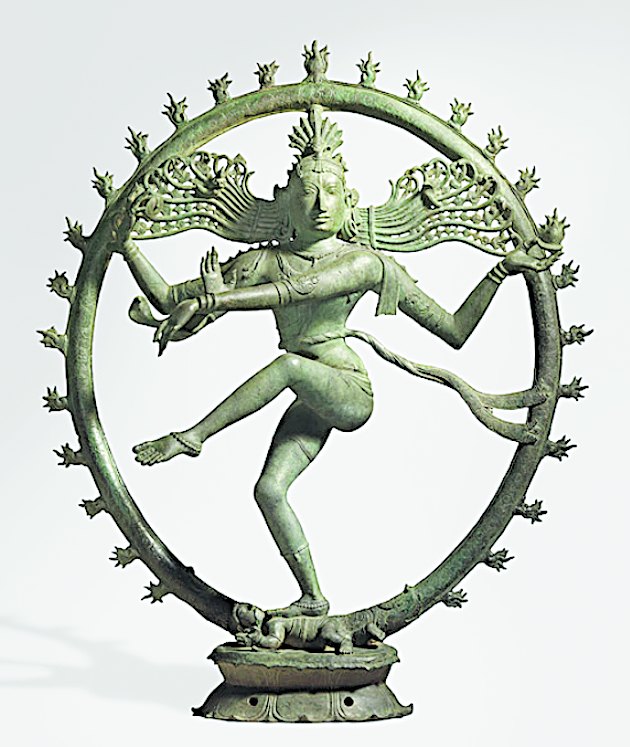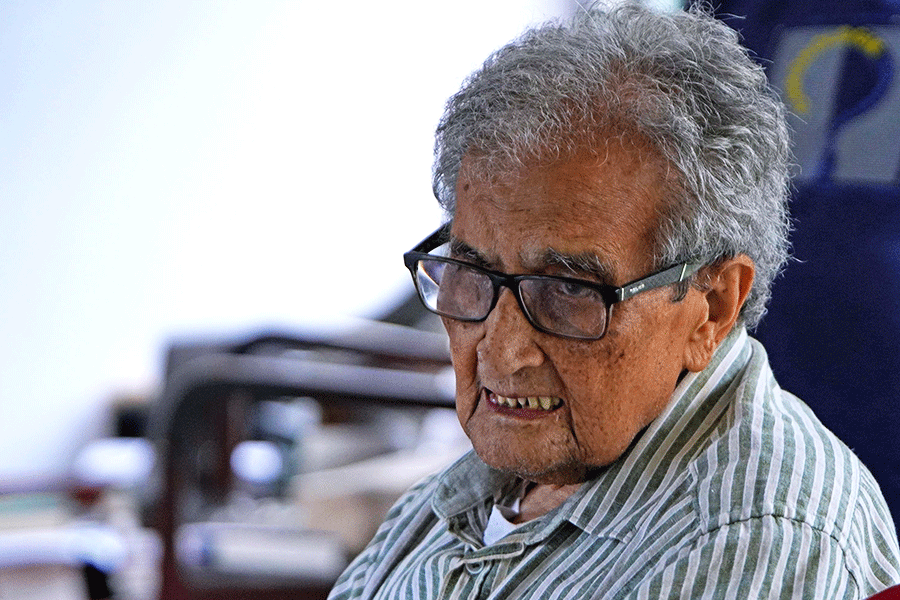
The Shiva Nataraja bought
by the National Gallery of
Australia for $5.1 million
New Delhi, Dec. 29: The Centre has for the first time drafted an art acquisition policy to ensure stolen and fake items do not find a place in museums, three months after Australia's premier gallery returned a Shiva Nataraja burgled from India.
A key objective is to draw lessons from the predicament of the National Gallery of Australia (NGA), which had in 2008 purchased the bronze Nataraja dating back to the Chola period for $5.1 million - over Rs 20 crore then - only to discover it had been cleaned out of an Indian temple. Prime Minister Tony Abbott handed over the sculpture to Narendra Modi in September this year as part of a goodwill gesture.
The draft guidelines drawn up by the culture ministry and recently circulated to the eight museums under it lay down a set of rules for purchases.
'All antiquities/artworks considered for acquisition must have been reasonably sourced and not stolen or illegally obtained. The museums should have exercised necessary due diligence before procuring the antiquity,' a guideline says.
For purchases above Rs 1 lakh, ads must be placed in newspapers and all dealers specialising in the artwork, instead of just one, should be called.
To ensure the process is above board, each museum will have to constitute an art acquisition committee (AAC) with six experts other than government officials. Such panels existed earlier but only had ministry and museum officials.
'The members of the AAC should be experts, who should be renowned names with sufficient academic credentials and publications as well as expertise in art history/ archaeology/Indian history with preferably 20 years of experience in handling antiquities and art objects,' a guideline says. The panel's term must be limited to three years.
The proposed rules come against the backdrop of irregularities and allegations of dodgy practices against several museum officials, spawning legal battles, police investigations and audit scrutiny. These resulted in a freeze on acquisitions for over a decade.
V. Venu, the director-general of the National Museum in Delhi, said the body's last new collection was purchased in 1997. 'From the academic sense, it is important for any museum to complete the narrative by filling the gaps in its collection. Internationally, acquisition is a dynamic process. You buy new collections and auction off old objects.'
The curator and secretary of Calcutta's Victoria Memorial, Jayanta Sengupta, said his museum had not made any major purchases since 2005. 'There were no guidelines in place, so we could not make purchases.'
In India, art auctions are still at a nascent stage and official trade is limited, with some blaming it on stringent rules under the Antiquity and Art Treasures Act, 1972. The act bans export of antiquities and requires them to be registered with the Archaeological Survey of India (ASI).
Venu, the National Museum chief, suggested how the approach of a predecessor, L.P. Sihare, in the 1980s could be held up as an example. 'Sihare had a network of sources and he would find out if any jeweller had stocks of antique jewellery or any dealer had a rare piece. He would stake them out and pursue them till they parted with the artefact.'
Acquisitions by museums earlier would be a shoddy affair, more like a fish market, other officials recalled. A few dealers would be called over and, for the next few days, the museum would turn into a bazaar with dealers displaying their wares in the corridors and the verandas. Acquisition committee members would haggle over the prices and finally settle on one.
'This practice was stopped as committee members, because of vested interests, often insisted on buying from a certain dealer. The CAG had also raised questions,' a ministry official said.










